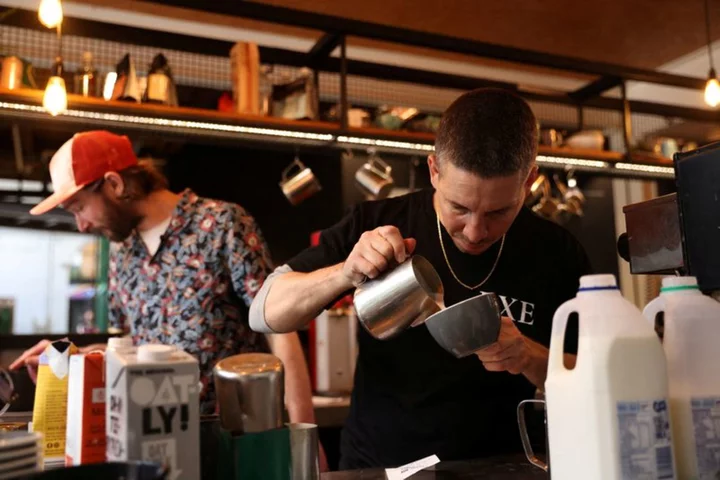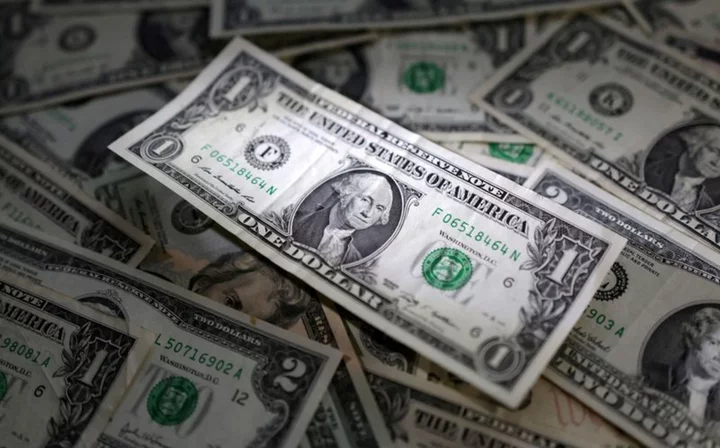By Stella Qiu
SYDNEY Australia's employment surged in August while its participation rate hit a record high and the jobless rate held steady, in a sign that decade-high interest rates have yet to soften demand in the drum-tight labour market.
While robust jobs figures on Thursday were mostly driven by part-time positions and have not dramatically changed the monetary policy outlook, they come amid a heating debate about workers pay and productivity with unemployment near five-decade lows.
The data from the Australian Bureau of Statistics showed net employment rose 64,900 in August from July, when they fell by an upwardly adjusted 1,400. Market forecasts had been for an increase of around 23,000.
The jobless rate held steady at 3.7%, matching forecasts from analysts, while the participation rate surged to 67.0%, the highest since records began in 2013.
"Headline indicators report a very strong employment report, but the bias towards predominantly part-time employment should temper exuberance," said Dwyfor Evans, head of APAC macro strategy at State Street Global Markets.
"There is little here to move the dial for the Reserve Bank."
The Australian dollar briefly broke above $0.6450 after data, unwound those gains and then rose again to $0.6442. Markets maintained bets that the Reserve Bank of Australia (RBA) would keep rates steady next month, with an about 40% chance of one final hike early next year.
The labour market has proven remarkably resilient with 410,700 net jobs added in the 12 months to August even as interest rates have climbed 400 basis points to an 11-year high of 4.1%.
WAGES, PRODUCTIVITY
The strong figures showed Australia's jobs market is still extremely tight more than and a year-and-a-half after the economy shook off its COVID-era border restrictions.
The crunch has heightened tensions between businesses who are calling for migrants to fill persistent labour shortages and workers who point out sky-high inflation is eating into real wages.
The debate about pay and productivity escalated this week after Australian property developer Tim Gurner complained at a business forum the pandemic had changed employees' work ethic and that "we need to see pain in the economy" and for unemployment to rise by 40-50% to adjust expectations.
Footage of his comments published by the Australian Financial Review on social media platform X were viewed more than 23 million times and sparked a backlash in Australia and abroad.
While some in industry agreed with Gurner's comments, others such as U.S. lawmaker Alexandria Ocasio-Cortez pointed out a growing discrepancy between executive and employee pay.
Treasurer Jim Chalmers on Thursday welcomed the strong jobs report, but warned that the labour market could slow from here, a consensus view among economists.
"High interest rates, high but moderating inflation and continuing global uncertainty – particularly the slowdown in China – will inevitably weigh on our economy and our labour market in the year ahead," said Chalmers.
The RBA expects the jobless rate to hit 3.9% by year-end and 4.5% by mid-2025.
Adam Boyton, head of Australian research at ANZ, is already seeing signs of slackening in the labour market, with underemployment rate creeping up and hours worked falling.
"Despite the jump in headline employment we are left thinking the August labour force survey in its entirety isn't too different from our broad expectations," Boyton said.
"As a result, there is no change to our RBA view off the back of these data, we see the cash rate on hold at 4.1% for quite some time."
(Reporting by Stella Qiu; Editing by Kim Coghill and Sam Holmes)









